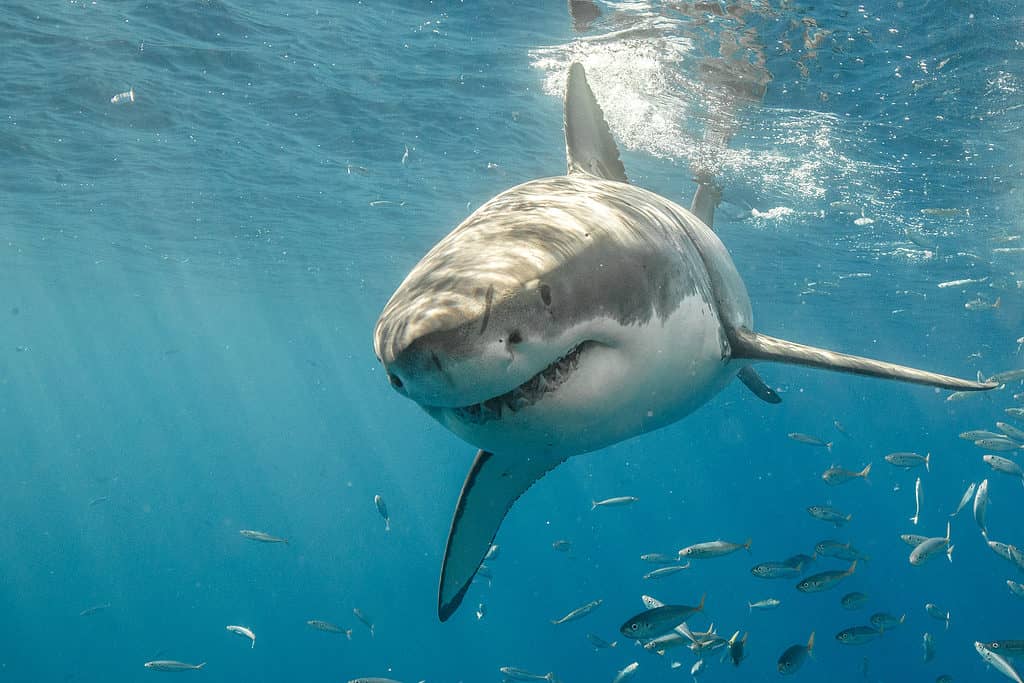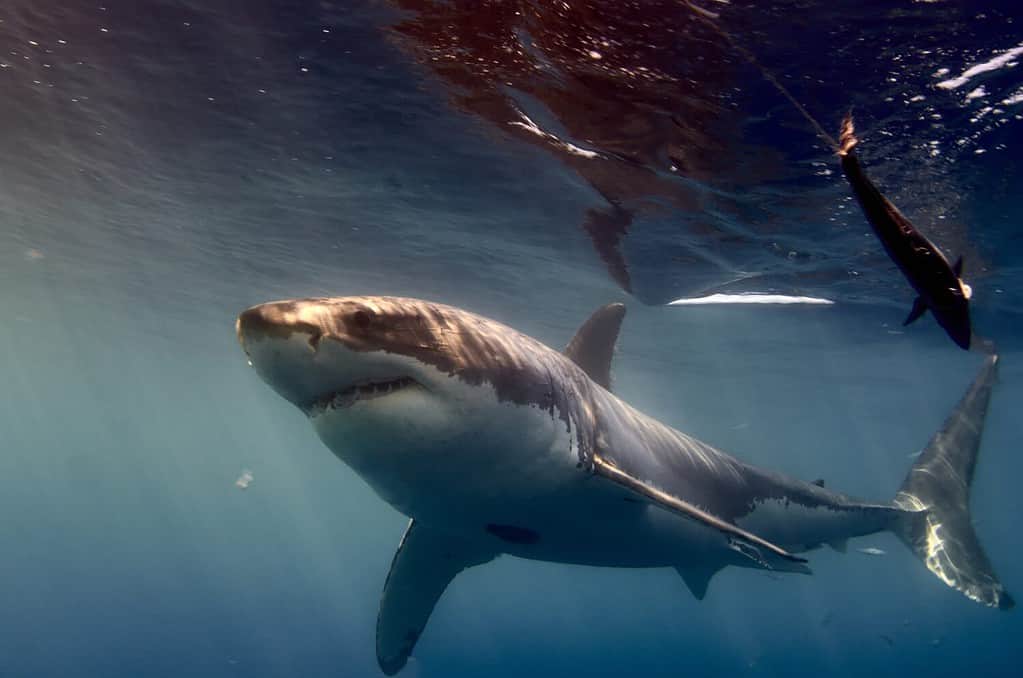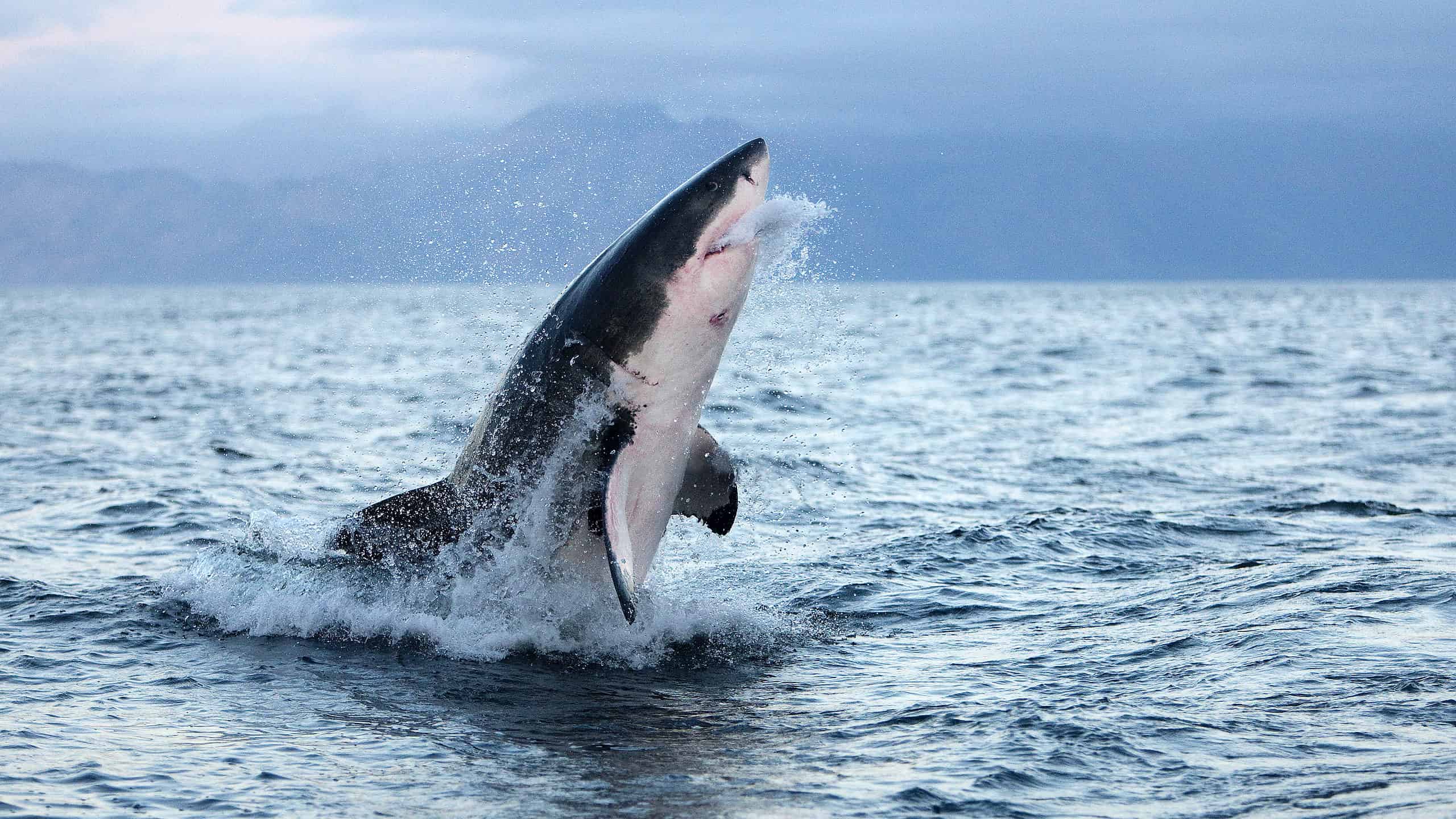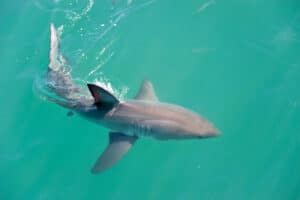Going to a beach is one of the best ways to get a little time for rest and relaxation. This great white shark might have you rethinking your beach trip plans! In this short video, a great white shows off its true power by jumping high out of the water.
Watch the Video Here
The clip found below begins by showing some crystal clear ocean water, with something floating on a line; likely some type of bait. With haste, a humongous great white shark leaps from the water. This behavior is known as breaching and is associated with shark hunting.
As the shark comes out of the water, you can see its massive gills pulse and its mouth opens to show a set of sharp teeth. Just as fast as it left the water, the shark dove back into the waters, presumably with the intent to hunt some more!
Why Do Sharks Jump Out of the Water?

Great white sharks are the ocean’s apex predators.
©iStock.com/ShaneMyersPhoto
As you probably know, sharks are aquatic creatures, meaning they can breathe and eat in the water. With this in mind, the act of jumping out of the water seems counterproductive to their whole body plan.
Biologists call the action of sharks jumping from the water breaching. Most predatory sharks jump out of the water to catch prey. Specifically, fast-moving prey which swims in shallow water is one of the main food sources that sharks will breach for.
Keep in mind though, breaching is a very intense activity that takes a lot of energy for sharks. Due to this, sharks will only breach if they are deep in a chase with a tasty meal. In other words, seeing a shark breach is normal, but rare!
How Dangerous Are Sharks? Will They Attack Humans?

Sharks eat almost any animal, sometimes even whales!
©Wirestock Creators/Shutterstock.com
Seeing videos like this can often cause fear of sharks. Seeing sharks in such an aggressive way can make people wonder if they should be scared of them.
Generally speaking, sharks as a whole are a label for a group of animals that vary widely in behavior. Within that group, great white sharks are some of the most aggressive. In terms of danger, great white sharks can be incredibly deadly, as they are super powerful, and have incredibly sharp teeth.
For almost any aquatic animal, great white sharks are dangerous. Sharks eat almost any animal, sometimes even whales!
In terms of human safety, sharks, even great white sharks, are not of great concern. Most great white sharks do not want to interact with humans.
In the odd case that a human has a dangerous run-in with a great white, most outcomes show that the shark wasn’t trying to kill the human, as injuries were minor. Additionally, the majority of great white shark attacks occur with young sharks, as they have poor eyesight and can mistake humans for small aquatic animals.
Is It Normal Behavior for a Great White Shark to Breach?
It is normal for a great white shark to breach, though it is more of a rare occurrence. While it’s the general consensus that great white sharks (along with others like makos, thrashers, and hammerheads) breach as a hunting strategy to capture prey, researchers are investigating some other possible explanations for this behavior.
Sharks may breach as a method of regulating their body temperatures. If the surface water is cooler, jumping out of the water may help cool them down. Another possible explanation is communication. These sharks may be sending signals regarding territory, dominance, or mating. Sharks could also be behaving in a way similar to dolphins–breaching as a form of play. And lastly (and perhaps most shocking), sharks could breach in order to remove parasites from their bodies.
Thank you for reading! Have some feedback for us? Contact the AZ Animals editorial team.








